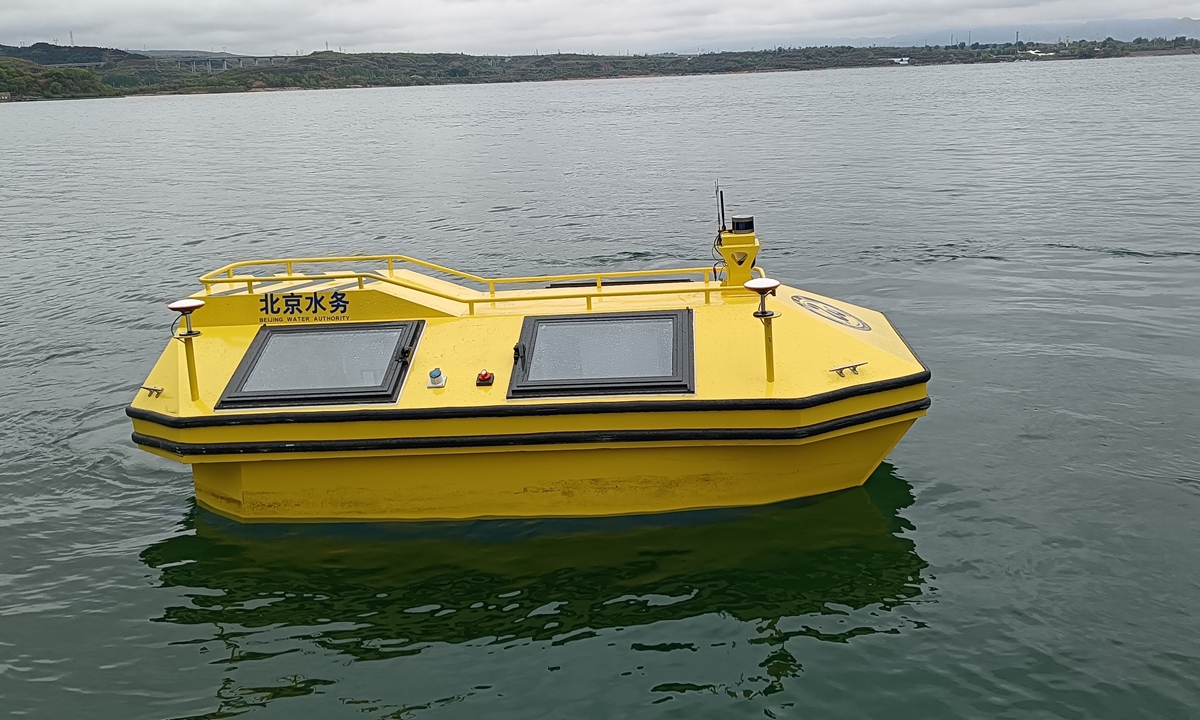
An unmanned vessel monitors water quality at Guanting Reservoir in Beijing. Photo: Courtesy of the Institute of Solid State Physics at Hefei Institutes of Physical Science
Beijing has deployed a newly developed unmanned vessel to monitor the water quality of the Guanting Reservoir, one of the major water sources for the Beijing 2022 Winter Olympics, and the trial operation showed that the pollutant index of the reservoir was far below the standard.
The vessel, 3.6 meters long and 1.8 meters wide, is the largest water quality monitoring unmanned surface vehicle in China, Yu Daoyang, a scientist at the Institute of Solid State Physics at Hefei Institutes of Physical Science, told the Global Times on Monday.
The vessel was put into trial operation in the reservoir in May 2021, and months of operation showed that the data from the vessel was highly accurate after evaluation by a third-party institute, Yu said.
The results proved that pollutants such as nitrogen and phosphorus were below the criteria, signaling that the water was safe in the reservoir.
Made of high-quality stainless steel to prevent corrosion, the vehicle runs on electricity and can operate for more than eight hours. The maximum speed is 10 kilometers per hour, twice an adult's walking speed.
Unlike previous surface water monitoring systems in China, which are mainly based on online monitoring of fixed stations, the vessel is based on precise control technology and can quickly cover a larger area. These properties allow the water monitoring department to quickly deploy the vessel to any location with abnormal conditions or in case of sudden water pollution incident, according to Yu.
The monitoring data and its movement are transmitted to the management platform in real time so that the data cannot be faked, and it can also trace the source of pollutants and monitor the development of pollutants in case of pollution accidents, Yu said.
Beijing has diverted water from North China's Shanxi and Hebei provinces to its Guanting Reservoir, and as of early January, the water level stood at 477 meters and the reservoir had 623 million cubic meters of water. It was the highest amount in 24 years, exceeding the target of 500 million cubic meters of storage for the Beijing 2022 Winter Olympics, the Beijing Daily reported, citing the Beijing Water Authority.
Apart from monitoring the water quality, the Beijing Water Authority launched a three-month campaign in January to crack down on fishing and dumping garbage in the reservoir, the report said.
Yu said that the vessel will be further upgraded to better cope with low temperatures and operate more easily, as currently the vessel can't be used in frozen water. With the upgrade, more reservoirs in Beijing are expected to use this kind of vessel.




